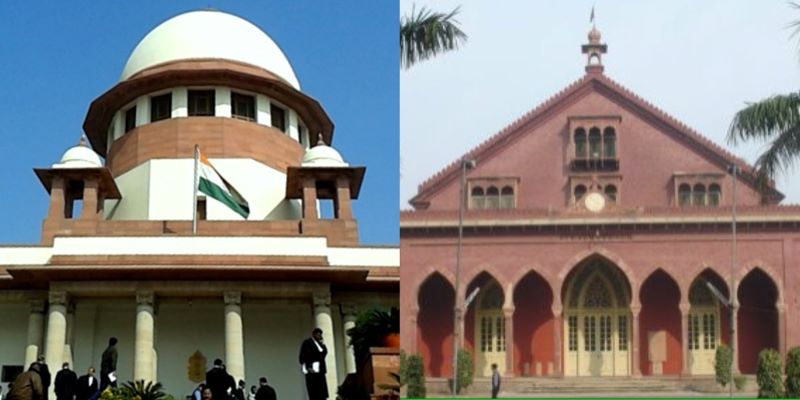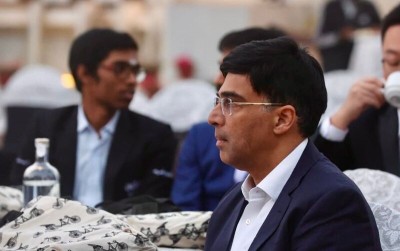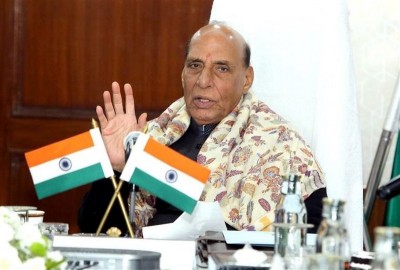 Minority Status
Minority Status
Aligarh Muslim University is of national character ought to maintain its secular character: Centre to SC
New Delhi/UNI/IBNS: The Aligarh Muslim University (AMU) is an institution of "national character" that ought to maintain its secular origins and serve the larger interest of the nation first, the government told the seven-judge bench hearing on the issue of retaining minority institution status of Aligarh Muslim University.
The Centre maintained that AMU, like the Banaras Hindu University, is an institution of national character, adding that no such university can be a minority institution.
The hearing started on Tuesday before a seven-judge Constitutional Bench of the Supreme Court of India on a batch of petitions on the issue of retaining the minority institution status of Aligarh Muslim University.
The seven-judge bench headed by Chief Justice D Y Chandrachud will decide on the question of whether an educational institution created by a parliamentary statute enjoys minority status under Article 30 of the Constitution.
Other members of the bench are Justice Sanjiv Khanna, Justice Surya Kant, Justice JB Pardiwala, Justice Dipankar Datta, Justice Manoj Misra, and Justice KV Vishwanathan.
"Owing to the secular ethos and nature of the nation and the Constitution, because AMU is an institution of educational ‘national character’, it cannot be considered to be a minority institution irrespective of the question whether it was established and administered by the minority at the time of inception or not," Solicitor General Tushar Mehta said in written submissions, adding that no other institution declared to be of national importance by Parliament is a minority institution.
"AMU is not and cannot be a university of any particular religion or religious denomination as any other university, which is declared by the Constitution of India to be of national importance," he added.
The ASG said that the grant of minority status would make it open for AMU to provide for reservations, even among teachers, of up to 50 percent or more to Muslims, while it would continue not to provide for reservations for SCs, STs, OBCs, and EWS.
Mehta stated that legally, an institution must be both "established" and "administered" by a minority group to come under the ambit of Article 30, and since the Basha judgment rendered a finding following a factual determination that AMU was predominantly a non-minority institution, it was not open for Parliament to change those findings of fact by way of amendments in 1981.
The seven-judge bench is expected to lay down parameters for granting minority status to an educational institution under Article 30 of the Constitution and also decide whether an educational institution created under a parliamentary statute can be given such status, effectively re-looking at the Basha verdict.
On Tuesday, AMU, through senior advocate Rajeev Dhavan, argued that private and minority institutions are the heart and soul of India’s education system and that the Basha judgment requires a reconsideration for ignoring several key aspects of the law as well as the purpose of having such institutions.
In 2006, the Allahabad High Court had stripped the university of its minority status.
The then Congress-led coalition government at the Centre and AMU had moved an appeal against the high court order.
In 2016, when the Bharatiya Janata Party (BJP) was already in power for two years, the Centre told the Supreme Court that it was withdrawing the appeal filed by the previous regime.
During the hearing of the case on Tuesday, the Centre said the government's decision to withdraw the plea was based on "constitutional considerations alone", Hindustan Times reported.
The Centre told the top court that the previous government's decision to fight the case was "against public interest" and opposed to the public policy of reservation for marginalised sections, the daily added.
In its 1967 Basha order, a five-judge bench of the Supreme Court directed AMU was not entitled to the minority status as it "was neither established nor administered by the Muslim minority".
In 1981, the minority status of the university was restored through an amendment to the AMU Act.
Support Our Journalism
We cannot do without you.. your contribution supports unbiased journalism
IBNS is not driven by any ism- not wokeism, not racism, not skewed secularism, not hyper right-wing or left liberal ideals, nor by any hardline religious beliefs or hyper nationalism. We want to serve you good old objective news, as they are. We do not judge or preach. We let people decide for themselves. We only try to present factual and well-sourced news.







